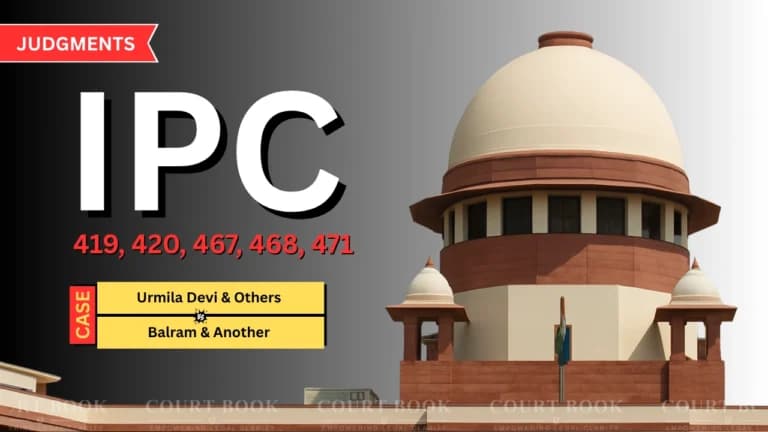In a significant judgment, the Supreme Court of India quashed criminal proceedings pending for over two decades against Urmila Devi and others, declaring that the case was nothing but a civil dispute masked as a criminal complaint.
The case arose from a dispute over the property of Ram Baksh Dubey, who passed away in 1994. Fearing that his third son Ashish Kumar might misuse the property due to his drinking habits, the testator executed an unregistered will on 23 December 1993, bequeathing all movable and immovable properties to his four daughters-in-law — the wives of his four sons.
Read also: Supreme Court Grants Anticipatory Bail to Meera Devi in NDPS Case
"The testator recorded in his will the intent to ensure his land and property are not jeopardized and that his daughters-in-law and grandchildren are not deprived of it." — Supreme Court Observes
After his death, Ashish Kumar sold his share to Balram (Respondent No.1) via a registered sale deed on 25 April 1994. The daughters-in-law, unaware of this transaction, applied for property mutation based on the will. The mutation was allowed on 27 September 1994 by the Tehsildar.
Later, Balram filed a complaint alleging the will was forged and a conspiracy was hatched post the testator's death. A complaint case under Sections 419, 420, 467, 468, and 471 IPC was registered. The accused sought to quash it under Section 482 CrPC, but the Allahabad High Court refused.
Read also: Supreme Court: No Fixed Deadline for Speaker in Disqualification Cases
“The High Court found the allegations to be sufficient for trial and refused to quash the complaint,” — Impugned High Court Order Dated 09.04.2019
The Supreme Court, however, found that the complaint lacked criminal ingredients. It noted that the allegations were inherently improbable and based purely on civil disagreements.
“It is writ large on the face of the record that the complaint case has been employed as a circuitous tool to abuse the process of law.” — Supreme Court
Citing landmark cases like State of Haryana v. Bhajan Lal and Madhavrao Jiwajirao Scindia, the bench emphasized that courts must not allow civil disputes to be disguised as criminal offenses.
Read also: Supreme Court Quashes FIR in Bengaluru Land Dispute, Highlights Misuse of Criminal Law
The Court also observed:
“The criminal case was filed seven years after the mutation, and four years after interim civil relief, suggesting mala fide intent.”
Ultimately, the apex court set aside the High Court's order and quashed Complaint Case No. 627 of 2002, pending before the Chief Judicial Magistrate, Basti.
“In the interest of justice, present proceedings be quashed… The appeal is allowed.” — Final SC Order
Case Title: Urmila Devi & Others vs. Balram & Another
Citation: 2025 INSC 915
Case Number: Criminal Appeal No. 3300 of 2025 (Arising out of SLP (Crl.) No. 10251 of 2019)
Date of Judgment: 31st July, 2025
Appellants: Urmila Devi and other daughters-in-law of the testator
Respondents: Balram and Another















